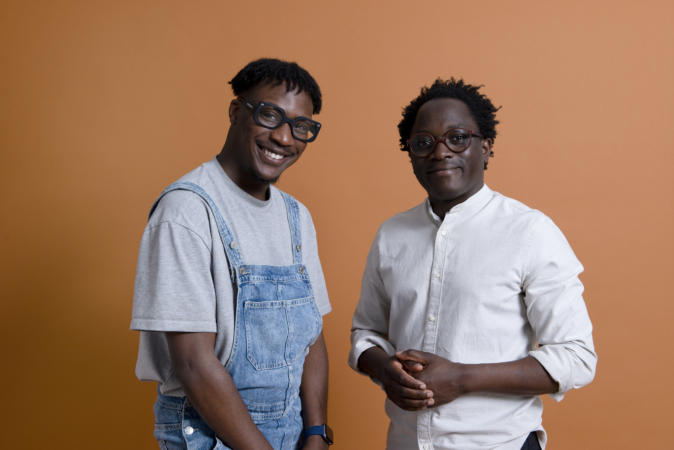When REFRAMD founders Ackeem Ngwenya and Shariff Vreugd needed a pair of glasses for themselves, they were faced with an issue that’s common for most Black men and women: no matter which frames they tried on, nothing fit their face.
“That experience made me feel unvaluable, and not ‘seen,’” he told AfroTech. “I thought about it some and realized that I wasn’t alone in this experience. Many glasses are made for those with European features — features that I clearly don’t have — so either I had to settle for ill-fitting products, or I had to come up with a solution.”
The solution, Ngwenya said, was to team up with Vreugd and create REFRAMD, which digitally scans your face to create glasses that are custom-made just for your features. Using algorithms and facial recognition technology, the program then makes glasses that are customized specifically for you. All you have to do is then choose the color, lens, and design.

Though the initial technology is in its beta version right now, Vreugd says that this will be perfected very soon. Vreugd also said that his reasons for co-founding the company with Ngwenya are also rooted in social justice and equality.
“Social, racial, and political inequalities are all mutually reinforcing, trapping people in a cycle of marginalization. I want to live in a world where people are treated as equals,” he said. “We feel that our people are neglected and not considered as valuable by many eyewear brands. I think this is absurd and want to be part of the change. We strongly identify with and are embedded in the community that we want to serve.”
REFRAMD has a Kickstarter campaign that’s in full swing, and as of this writing, they’ve exceeded their initial goal. Per their Kickstarter, the company only makes glasses on demand — meaning that there’s no excess inventory, and no waste. What’s more, while it’s unclear if this will make a mass-market impact (“The fashion industry won’t change unless it has a reason to,” said Vreugd), what is clear is that they’ve already gotten the conversation going.
“And that’s really the most we can hope for,” said Ngwenya. “If what we do advances the course of progress, I’m certainly here for that. Together, there’s nothing we can’t do to make a permanent change in the world — and for the better.”
Editorial note: Portions of this interview have been edited and condensed for clarity.


